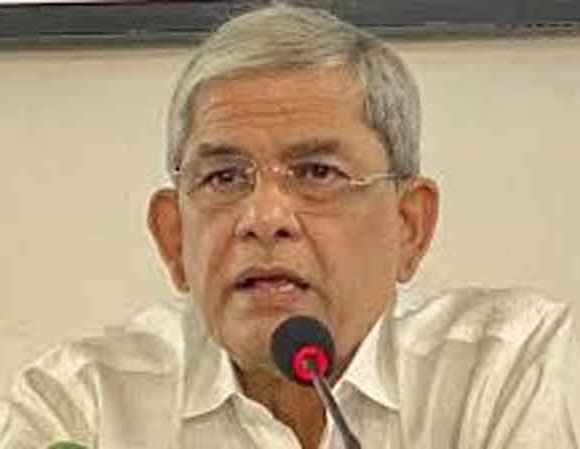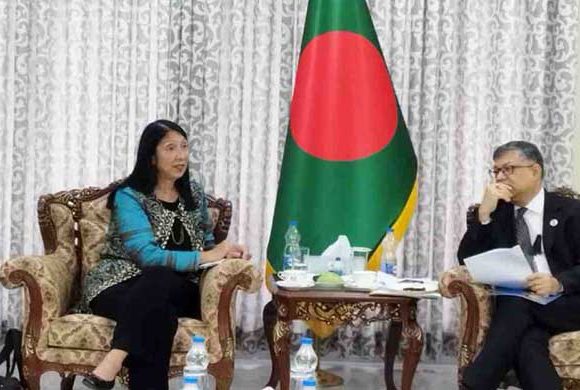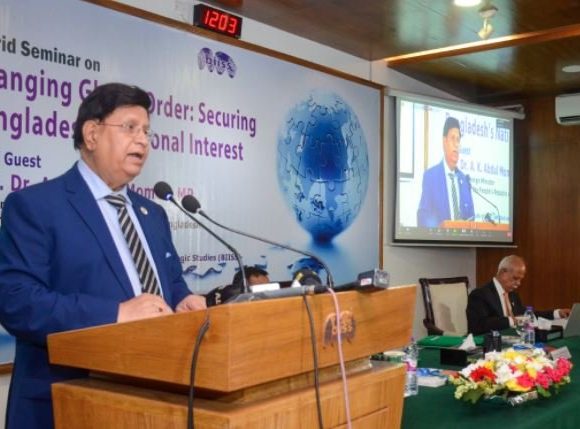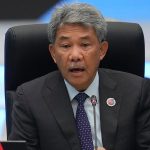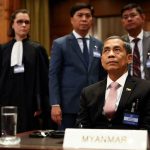Rohingya refugees wary as China develops plan for repatriation
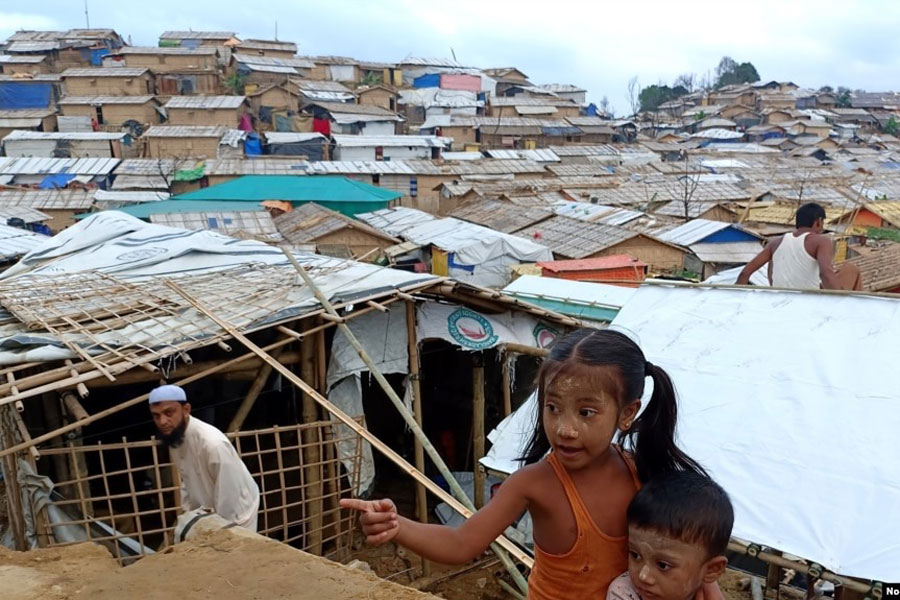
Rohingya refugees living in squalid and sprawling camps in Bangladesh are casting a skeptical eye on a Chinese initiative to facilitate their return to Myanmar, where they were subjected to a campaign of murder and burning by the same military forces that now rule the country, VOA reports.
“We want to return home. However, under this pilot scheme, the Myanmar military will confine us in camps. They won’t allow us to go back to our homes and villages,” Aung Myaing, a Rohingya relief volunteer at the Kutupalong refugee camp in Cox’s Bazar, Bangladesh, told VOA by phone.
“We feel that China’s intervention in the Rohingya repatriation issue has been motivated by China’s own self-interest rather than concern for the refugees here. If China truly wishes to assist, it must act to ensure that the Rohingya return safely and with dignity,” he said.
Nearly 1 million Rohingya are living in camps in the border district of Cox’s Bazar, most having fled a military-led crackdown in Myanmar in 2017, now the subject of a genocide case at the International Court of Justice.
More than two years since the military coup in Myanmar, China has resumed close ties with the now-ruling junta. On July 27, during a surprise two-day visit to Myanmar, Chinese special envoy Deng Xijun met with key military officials, including Senior General Min Aung Hlaing.
“We had a detailed discussion about our peace process, the stability of the China-Myanmar border region, and security and law enforcement issues,” junta spokesperson Major General Zaw Min Tun told VOA by phone.
Chinese representatives, including former Foreign Minister Qin Gang, have made several trips to Myanmar this year. According to analysts, the frequent visits are a sign that China is attempting to reimplement its large investment projects there.
In January, China renewed discussions with Bangladesh about a pilot repatriation program for displaced Rohingya. In April, Deng visited Dhaka to discuss Rohingya repatriation with Foreign Minister AK Abdul Momen and Foreign Secretary Masud Bin Momen. That same month, China hosted a Rohingya repatriation tripartite (China, Myanmar, Bangladesh) meeting in Kunming, capital of Yunnan province.
The committee proposed to repatriate just 1,176 Rohingya under the pilot program. A Rohingya delegation was sent to Myanmar’s Rakhine state to assess housing conditions there, and later that month, a Myanmar delegation met with Rohingya in Cox’s Bazar. According to local news reports, a Bangladeshi official said it was unclear when the pilot program would begin.
China’s involvement
“China is pressing for stability in a region that is part of its Belt and Road Initiative project, specifically the Rohingya’s home, Rakhine state,” Hla Kyaw Zaw, a Burma-China scholar based in China, recently told VOA. “This will connect the important trading hub, the border town, Ruili, in southern Yunnan state, to Kyaukphyu seaport, which lies on the Bay of Bengal.
“As a world power, China likes to be seen as taking the initiative to solve regional issues. China’s slogan is ‘Development, Peace and Cooperation,’” she said. “There is a meeting at the end of this year to mark the 10th anniversary of the start of President Xi Jinping’s BRI project, and the Kyaukphyu deep sea port in Rakhine state is quite important to them, especially now.
“Another factor,” she said, “is that the China-Pakistan Economic Corridor plan has already been completed; but in Myanmar, the road has not yet been built. In order to do this more quickly, China stepped in, thinking that it would help to solve the Rohingya problem in Burma.” Burma is another name for Myanmar.
Legacy of violence
China tried to broker an agreement with Myanmar in November 2017 to repatriate about 700,000 Rohingya Muslims who had fled persecution in their home country. Again, in 2019, further efforts were made to return the refugees, but Rohingya refugees rejected the move, fearing a reemergence of the violence that forced them to flee, a sentiment still widely held among Rohingya refugees.
Shwe Maung, a former Rohingya lawmaker during the Thein Sein presidency who now lives in the United States, told VOA that the Rohingya have serious reservations about China’s involvement.
“China is characterizing the Rohingya pilot repatriation project as a kind of humanitarian aid,” Shwe Maung said. “In fact, it should be seen through the lens of their actions against the minority Uyghur Muslims in their own country. They are put in prison camps called ‘educational camps’ and cut off from the world.”
He continued: “Since the coup in Myanmar, the world’s attention to the Rohingya issue has diminished, which is beneficial for both China and the junta’s interests.”
According to Shwe Maung, China has provided the junta with an example of how to control the Rohingya in a new way.
“The junta likes the way the Uyghurs were controlled,” he said. “More than 1,000 Rohingya who are now slated to be sent back to their home country will be kept in a detention center. This detention center will become a concentration camp in the long run.”
Bangladesh’s role
As the host country to one of the world’s largest refugee populations, Bangladesh has sought cooperation from the international community, including China, to repatriate Rohingya refugees to Myanmar.
China is an important trade partner for Bangladesh, mostly for raw materials used in manufacturing, and the two countries get along well. But keeping close ties with Beijing is not easy for Bangladesh since it must balance political and trade ties with China’s major rivals: India and the United States.
Aung Myaing, the relief volunteer, told VOA that the government and the people of Bangladesh support repatriation of the Rohingya refugees to Myanmar.
“The prime minister of Bangladesh has appealed directly to the United Nations and the international community for help to resolve the crisis,” he said. “Bangladesh is also involved in the International Criminal Court case of possible crimes against humanity in Myanmar since 2019.”
He continued: “The international community, however, hasn’t been able to provide effective assistance in the past six years. Bangladesh is a very densely populated country with many internal issues that make hosting so many refugees that much more difficult. Therefore, international aid should be provided quickly and effectively.”
Yearn to return
“Looking at the situation in Myanmar,” Aung Myaing said, “the military junta has yet to resettle the Rohingya IDP [internally displaced persons] to their homes in Rakhine state. If we do any pilot resettlement projects, we should deal with IDP in Myanmar first. Only after we do that, we can begin the process of repatriation of Rohingya currently in Bangladesh.”
Aung Myaing is keen to return to Myanmar but says he wants his citizenship rights there guaranteed. “We are the citizens of Myanmar by birth. We want to go back home with all our rights, including citizenship, free movement, livelihood, safety and security,” he told VOA, adding that, “the refugees here still hold out hope for help from the international community, including from the United Nations.”

